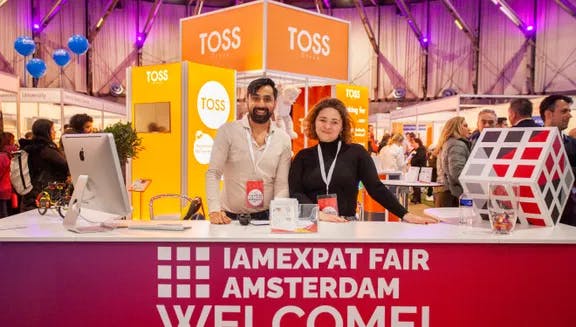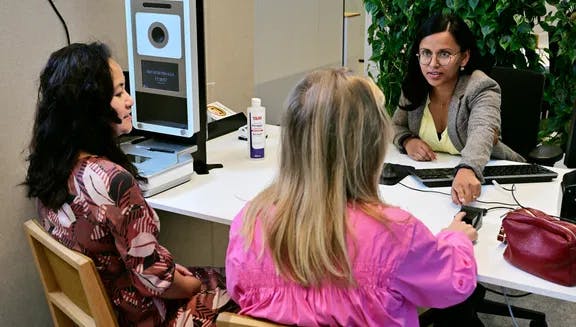
Changes in rules and regulations in the Netherlands for 2024
Scaling down the 30% ruling
The 30% ruling is a tax advantage for highly skilled migrants moving to the Netherlands for a specific employment role. When the necessary conditions are met, the employer can grant a tax-free allowance equivalent to 30% of the gross salary subject to Dutch payroll tax. From 1 January 2024, this benefit is to be reduced progressively from 30% to 10% over its five-year term. The changes apply to new applicants from 1 January 2024.
Salary thresholds for immigration
The Dutch Immigration and Naturalisation service (IND) adjusts its requirements for applications for residency in the Netherlands twice annually. For January 2024, the following new salary thresholds have been set by the IND. They apply to gross monthly salary, excluding the 8% holiday allowance.
- Highly skilled migrants from 30 years of age or key personnel Intra-Corporate Transferee: €5,331
- Highly skilled migrants younger than 30 years or key personnel Intra-Corporate Transferee: €3,909
- Highly skilled migrants – reduced salary criterion: €2,801
- European Blue Card holders: €6,245
Changes in energy costs
The energy price cap that applied in 2023 has ceased to apply in 2024, and low-income households are no longer entitled to an energy allowance (which was at a maximum of €1,300 in 2023). However, the ‘Noodfonds Energie’ emergency fund is being continued.
Double surnames for newborns permitted
Children born on or after 1 January 2024 may be given the surnames of both parents – unhyphenated – if this choice is explicitly stated when registering the birth. Up until then, children of parents who are not married or in a registered partnership were automatically given the surname of the birth mother, whereas children of parents who are married or in a registered partnership were automatically given the surname of the father or co-mother. This rule will continue to apply unless parents opt for a double surname.
The chosen surname will then be given to all subsequent children. A transition period applies: if the eldest child was born on or after 1 January 2016, the parents may still opt for a double surname for all their children. They are given one year from 1 January 2024 to decide on this.
Paving the way for bilingual childcare
From 2024, childcare facilities are permitted to offer multilingual care. Multilingual childcare may be offered in English, French or German in addition to Dutch and/or Frisian. Nurseries and daycares may offer this for a maximum of 50% of each day.
Ban on plastic cutlery and disposable tableware
Businesses including hospitality and catering businesses are no longer allowed to use disposable plates, bowls and cups or plastic takeaway containers for food and drink. Plastic cutlery has also been banned. If you think single-use tableware is indispensable for your business, you can apply for an exemption (in Dutch).
Changes to the minimum wage
The way the legal minimum wage is calculated has changed. It was previously calculated by month, leading to a discrepancy in rates depending on how many hours someone works. To be entitled to the monthly minimum wage, an employee needs to be working full time. However, the amount of hours in a week that are considered full-time work differs depending on the job: it can be 36, 38 or 40 hours. As a result, an employee that needs to work 40 hours a week for full-time status previously received a lower hourly minimum wage than someone who only needs to work 36 hours to qualify as a full-time worker. From 1 January, the minimum wage is being set at an hourly rate, meaning the rate is the same for everyone. The legal minimum is now €13.27 per hour – an increase for all three scenarios.
Allowances and benefits
Universal child benefits, means-tested housing benefits and means-tested childcare benefits have risen, while means-tested healthcare benefits have slightly decreased. Find out more about government benefits and allowances (page in Dutch). On that page you can also check for which benefits and allowances you are eligible and calculate how much you will receive.
One place for all permit applications
The new Environment and Planning Act (Omgevingswet) should make it faster and easier for businesses and individuals to apply for permits. This includes planning permissions for buildings (including both large-scale construction work and smaller projects, such as converting a garage into a business space or carrying out works that require felling a tree). The new, single law replaces 26 existing laws and means that from 1 January 2024, you can apply for a permit with a single application at one desk; you should also be able to expect a decision sooner, e.g. within eight weeks instead of the current 26 weeks. A related new rule is that from now on, a Safety Coordinator (Veiligheidscoördinator Directe Omgeving) must be present during construction and demolition work.
Higher excise duty on alcohol and consumption tax on non-alcoholic drinks
Excise duty on alcoholic beverages has gone up by 8.4%. In addition, the consumption tax on non-alcoholic drinks such as soft drinks and fruit juices rises to €26.13 per 100 litres (hectolitre); this consumption tax does not apply to mineral water and milk.
Private business ownership allowance
Business owners who work at least 1,225 hours in their own business are eligible for the private business ownership allowance (zelfstandigenaftrek). However, the rate for this will decrease by €1,280 to €3,750. The allowance is expected to further decrease over the next few years, reaching €900 in 2027.
Other tax changes
- The purchase and installation costs of solar panels continue to be exempt from VAT.
- The pre-tax travel allowance (reiskostenvergoeding) is increasing to €0.23 per kilometre in 2024.
- A number of other changes are being introduced as part of the government’s 2024 tax plan.
- The SME profit exemption, which reduces taxable profit, drops from 14% to 13.31%. Business owners with high profits will lose out the most as a result.
Find out more about types of taxes in the Netherlands and other changes that will affect businesses and freelancers in 2024.
New regulations from the City of Amsterdam
2024 also brings a range of changes to municipal regulations affecting people living in the City of Amsterdam and Weesp. Several of these regard housing: for example, the maximum number of B&Bs permitted in each district will decrease by 30%, with the exception of Weesp. Another change is that teachers in the special needs sector and trainee police officers will get priority for rental housing.
Find out more
You can find more detailed information on the various changes that are expected to come into effect in 2024 on business.gov.nl and the Dutch Government website (in Dutch) and find out more about what’s changing in the City of Amsterdam and Weesp.
For regular updates on news and events of interest to the international community in the Amsterdam Area, sign up for the IN Amsterdam newsletter. Our monthly roundups will help you feel at home.
Related articles

New Migration Monitor with interactive dashboard

Easing into life in the Netherlands: the IamExpat Fair

RNI Registrations available again at IN Amsterdam

Announcing IN Amsterdam’s new online tool for appointments

What’s changing in the Netherlands in summer 2024

New relocation app for international talent

Reductions to Dutch 30% tax benefit for foreign workers under review by Senate

What’s changing in the Netherlands in 2025

The role of international talent in tackling healthcare shortages in the Netherlands
